|
Happy to announce that the Princeton Alumni Weekly is running an excerpt from Happy Dreams of Liberty in their Featured Authors section (the dream of any Princeton grad). You can check it out here.
0 Comments
If you have a long road trip or plane ride coming up this holiday season, do I have good news for you: Happy Dreams of Liberty will be released as an audiobook on December 26, narrated by Allyson Johnson. You can find it on Audible.com, Spotify, iTunes, Google Play, and other online retailers.
Allyson Johnson has narrated titles by groundbreaking historians such as Annette Gordon-Reed, Nell Irvin Painter, and Tiya Miles (along with many other distinguished authors -- including Neil deGrasse Tyson), so it's an honor and a pleasure to hear her read Happy Dreams of Liberty. So that's 9 hours and 20 minutes of my travel time covered...
The Frederick Douglass Prize is awarded by Yale University's Gilder Lehrman Center and recognizes the best book written on slavery, resistance, or abolition in the last year. From the press release: Gilder Lehrman Center director David W. Blight commended the two books for the “breadth and depth of their scholarship and sensitive treatment of human-centered struggles for emancipation.” Jury chair Kerry Ward added that, in combination, the “compelling writing” of the winning books helps readers understand “the diversity of the experiences of slavery in different times and places,” with people centered at the heart of these stories. Simon Newman's book is Freedom Seekers: Escaping from Slavery in Restoration London, and is available from the University of Chicago Press. Scars on the Land: An Environmental History of Slavery in the American South, by Dr. David Silkenat of the University of Edinburgh, was also shortlisted for this year's prize, and is available from Oxford University Press.
Historians often talk about "buried secrets" and "digging up the past," but -- unlike archaeologists -- for us, it's usually a metaphor. Sometimes, however, history really is buried. In honor of spooky season, I'll be sharing stories this month from a few of the cemeteries I've visited over the course of my research, and the insights I gained there that I couldn't have learned from the archive. Note: No graves were disturbed in the making of this post. North of Huntsville, Alabama, in the tiny community of Hazel Green, a low stone wall marks the gravesite of two brothers: Samuel and Edmund Townsend. Located directly adjacent to a cornfield, the green, grassy cemetery sits on land the Townsend brothers once owned. Samuel and Edmund were wealthy white cotton planters of the antebellum era, multi-millionaires by today's standards, with thousands of acres of farmland, herds of hogs and cattle, stands of beehives for honey, and a big house shaded by fruiting pecan trees. They were the aristocrats of the pre-Civil War South, and their lifestyle was only possible because they kept hundreds of enslaved people in bondage on their vast plantations.
Lizzy arrived in Alabama the year the stars fell. She was ten or eleven--she couldn’t say for sure--but for the rest of her life she would remember that night in 1833 when the world seemed to be ending. Around midnight on November 13, shooting stars began to fill the skies east of the Rocky Mountains, with Alabamians receiving the most spectacular view. Flashes of light and booming sounds woke people and drew them outside as meteors passed through the Earth’s atmosphere, dozens per second and hundreds per minute, according to some estimates. It was "as if the planets and constellations were falling from their places," one newspaper reported the next day. As the shower continued unabated for hours, witnesses started to wonder whether this was the long-awaited second coming of Christ. "And the stars of the heaven fell unto the earth," the book of Revelation reads, "for the great day of his wrath is come, and who shall be able to stand?" Terrified onlookers cried or prayed or simply stared in wonder. Up north in Illinois, a young man named Lincoln heard his innkeeper shouting "Arise, Abraham, the day of judgment has come!" For a century after, Alabama residents would mark time by the year the stars fell, the dividing line for local and personal histories. It was the dividing line for Lizzy too, a night the sky seemed to reflect what must certainly have felt like the end of her world: the year she was forced to leave her home in Virginia, sent west on a 700-mile trek to Alabama, and sold to a man named Edmund Townsend.
I got a big surprise this summer when I learned that the Society of Civil War Historians had named Happy Dreams of Liberty the winner of their 2023 Tom Watson Brown Book Award. Part of the surprise came from the fact that this is an award for "the best book published on the causes, conduct, and effects, broadly defined, of the Civil War," and I hadn't really thought of my book as a Civil War story. Happy Dreams of Liberty focuses on the lives of the Townsend family under slavery, through their emancipation in 1860 (shortly before the Civil War), and in their struggle for freedom and equality across the country in the decades after. One of the Townsends, Charles Osborne, did enlist in the Union Army during the war, but he served as a clerk and quartermaster in Union-occupied Vicksburg for just a year. His experience of wartime wasn't blood and battles; it was paperwork and patrol duty. The other Townsends spent the war farming, teaching, marrying, and raising families. The war itself takes up only a few pages in the entire book. "Marriage of a Colored Soldier at Vicksburg," Harper's Weekly, 20 June 1866. Courtesy of the Library of Congress.
The illustration above depicts a Freedmen's Bureau chaplain marrying an African American soldier and his bride. Processing paperwork for legal marriages -- which were denied enslaved people -- would have been one of Charles Osborne Townsend's tasks as a clerk in Vicksburg. Last February, I was honored to receive the The Huntington Library's 2023 Shapiro Book Prize for the best first book in American history and culture. Often, the "big" histories (sweeping national narratives and presidential biographies) are the books that get the most attention. For the prize jury to recognize the significance of the enslaved family's story at the heart of Happy Dreams of Liberty is an immense honor and a validation of all the "small" stories out there that expand our understanding of what -- and who -- count as important pieces of American history. You can check out the public lecture I gave at the Huntington in February on YouTube. |
Blog byAward-winning author and historian of slavery R. Isabela Morales Archives
December 2023
Categories
All
|

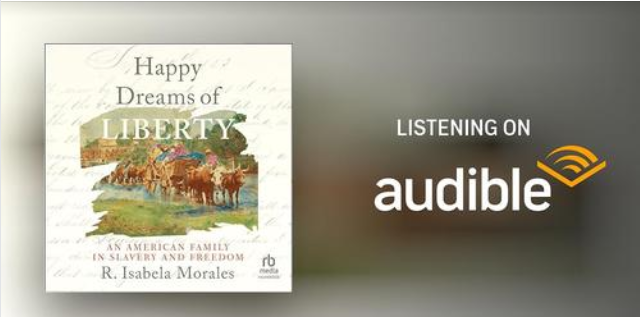
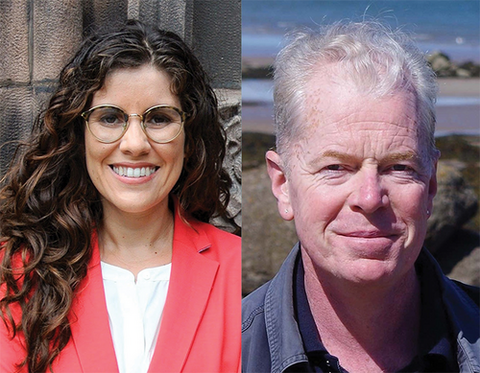
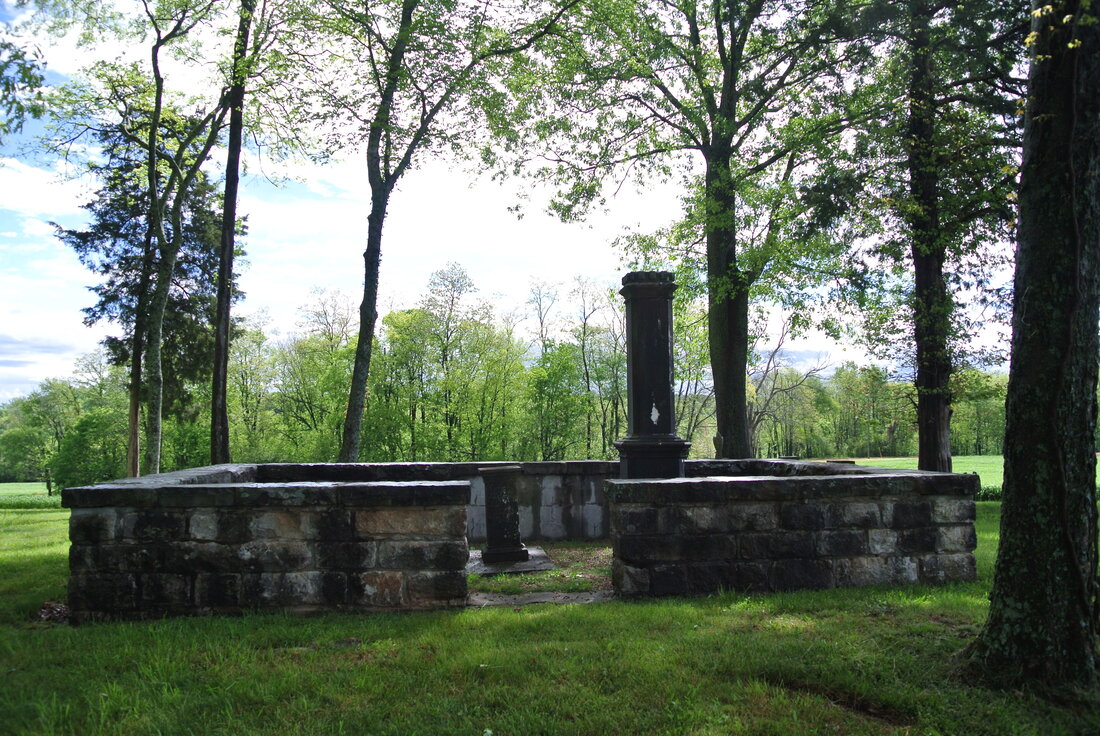
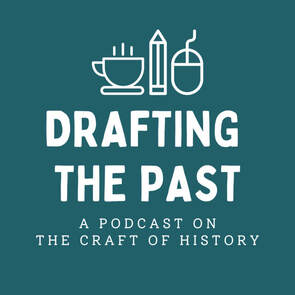
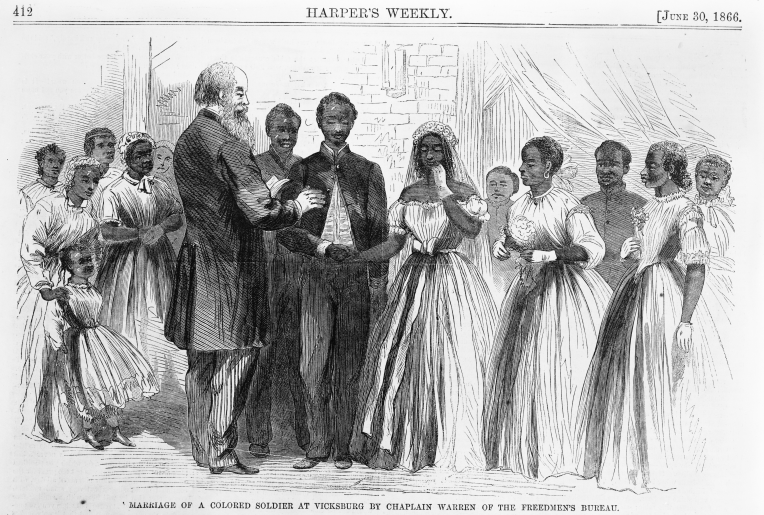
 RSS Feed
RSS Feed